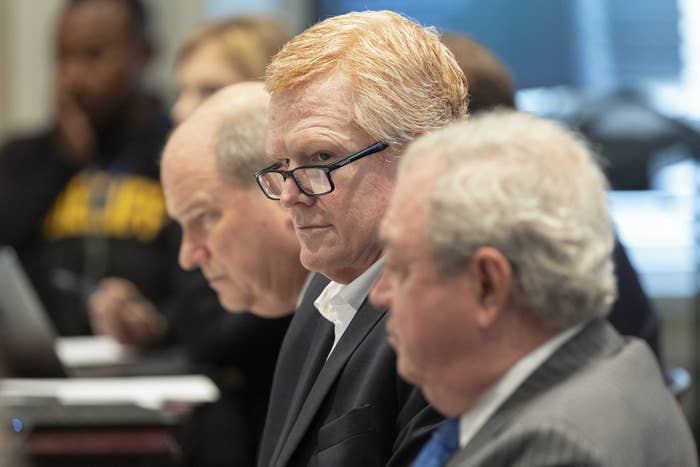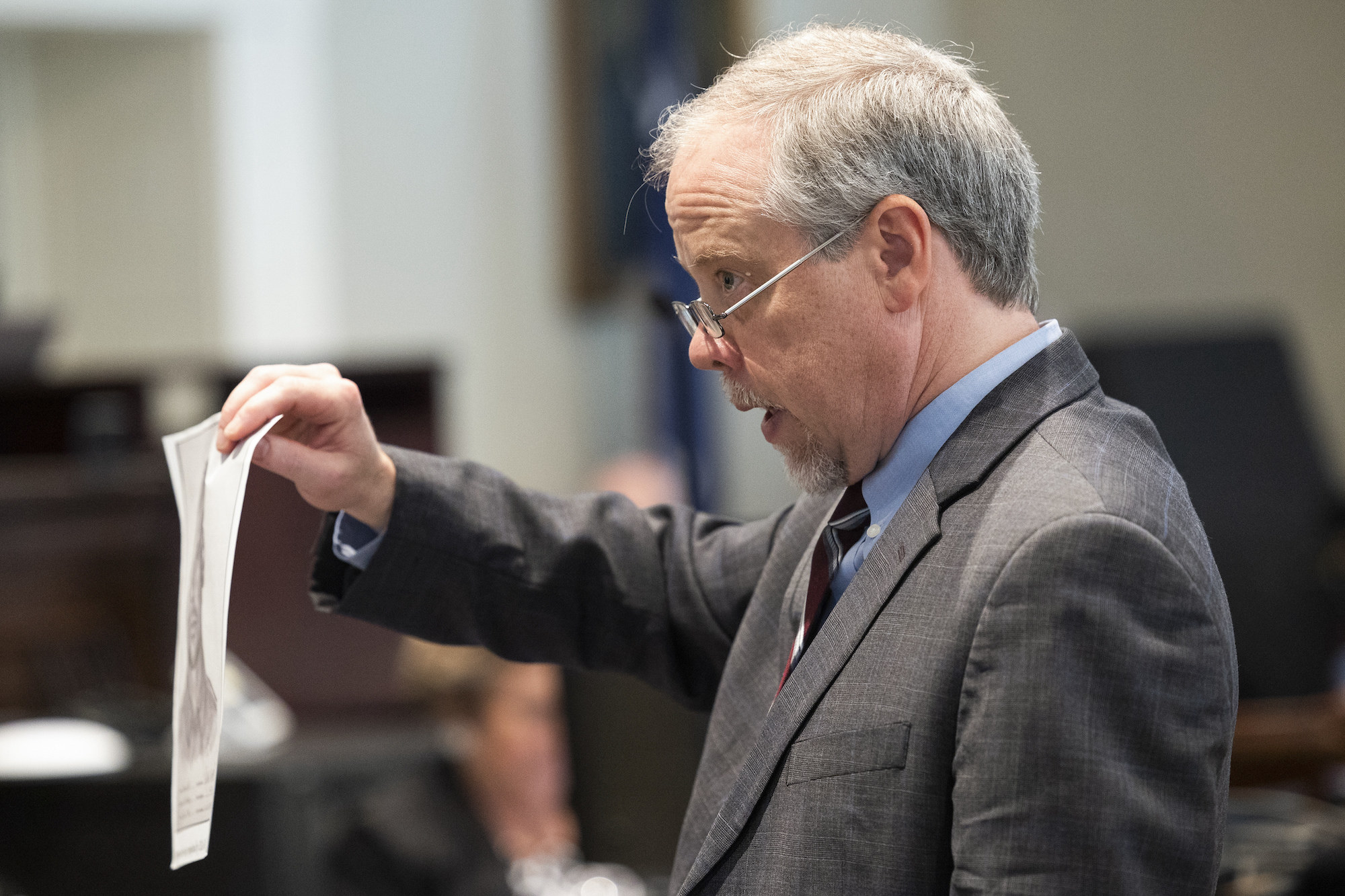
As the “gathering storm” of his financial misdealings swirled above him, Alex Murdaugh murdered his wife and son in a desperate attempt to garner sympathy and protect his legacy, prosecutors alleged.
Prosecutors gave their closing argument on Wednesday for the weekslong South Carolina trial, where Alex stands accused of fatally shooting his wife, Maggie, and son Paul in June 2021. The defense is expected to give its closing argument Thursday, and then the jury will finally begin deliberating.
“There is only one person who had the motive, had the means, who had the opportunity to commit these crimes, and also whose guilty conduct after these crimes betrays him,” lead prosecutor Creighton Waters said. “The defendant is the one person who was living a lie. The defendant is the person on which a storm was descending.
“Those pressures mount,” he said, “and someone becomes a family annihilator.”
The Murdaughs were well known in their community, a powerful, wealthy family from a long line of South Carolina attorneys. But below the surface, things weren’t as picture-perfect as they seemed. Alex was secretly addicted to prescription drugs, and multiple witnesses said he was illicitly siphoning off millions of dollars from the law firm where he worked.
Alex may have feared his alleged financial crimes were about to be revealed — both by his law firm’s chief financial officer, who had grown increasingly suspicious of him, as well as due to a civil discovery hearing later that week for a lawsuit over the fatal boat crash that involved his son Paul. “The pressures on this man were unbearable, and they were all reaching a crescendo the day his wife and son were murdered by him,” Waters said.
It was a pivotal moment, one where Alex’s reputation and his family’s good name stood to be permanently tarnished, and his “ego couldn’t stand that,” Waters contended.
“The entire illusion of his life was about to be altered — he couldn't live with that,” he said. “He's the kind of person for which shame is an extraordinary provocation.”
Alex’s experience as a lawyer, prosecutors argued, aided him immensely in covering up his role in the deaths of his wife and son. Waters urged the jury to bear this in mind and consider the lengths he might have gone to plan his defense and construct an alibi.
“This is an individual who was trained to understand how to put together cases, complex cases,” Waters said. “He's been a prosecutor, he's done complex car wrecks, he understands the law. He's given closing arguments to juries before.”
“This is exactly the kind of work he did,” Waters said. “His skills as a lawyer were understanding the emotional value of a case, understanding the sympathies of a case.”

Earlier in the trial, Alex took the stand in his defense, admitting that he’d lied to investigators and loved ones about his whereabouts shortly before Maggie and Paul were shot. Still, he maintained his innocence, continuing to deny he was the one who killed them.
“Oh, what a tangled web we weave,” Alex said in his testimony, quoting the 1808 epic poem Marmion by Sir Walter Scott. “Once I told the lie, and I told my family, I had to keep lying.”
But if Alex were truly innocent — if his wife and son had been murdered in cold blood, and their killer was still out there — why would he lie? Waters asked. Throwing Alex’s own words back at him, Waters emphasized the defendant’s admitted tendency toward deceit.
“One thing I will agree with that he said up there: 'Oh, what a tangled web we weave, when first we practice to deceive,’” Waters said. “How appropriate coming from that man.”
Waters urged the jury to carefully consider the evidence they’ve heard, using their sense of logic and knowledge of Alex’s state of mind and possible motivations. He nodded at the criticism that there had been limited direct evidence tying Alex to the crimes, but he urged jurors to consider the complete picture.
“We couldn't bring you any eyewitnesses, because they were murdered,” Waters said. “But common sense and human nature can speak on behalf of Maggie and Paul when we look at this in its totality … and they deserve a voice.
“Everyone who thought they were close to him, everyone he thought they knew he was who he was, he's fooled them all,” he said. “And he fooled Maggie and Paul too — and they paid for it with their lives. Don't let him fool you too.”
